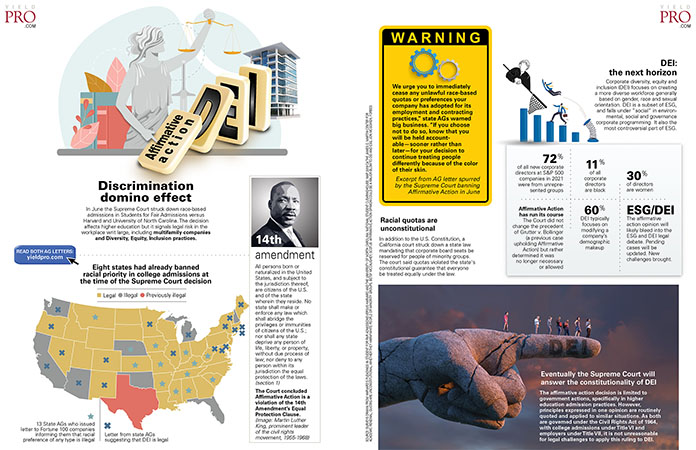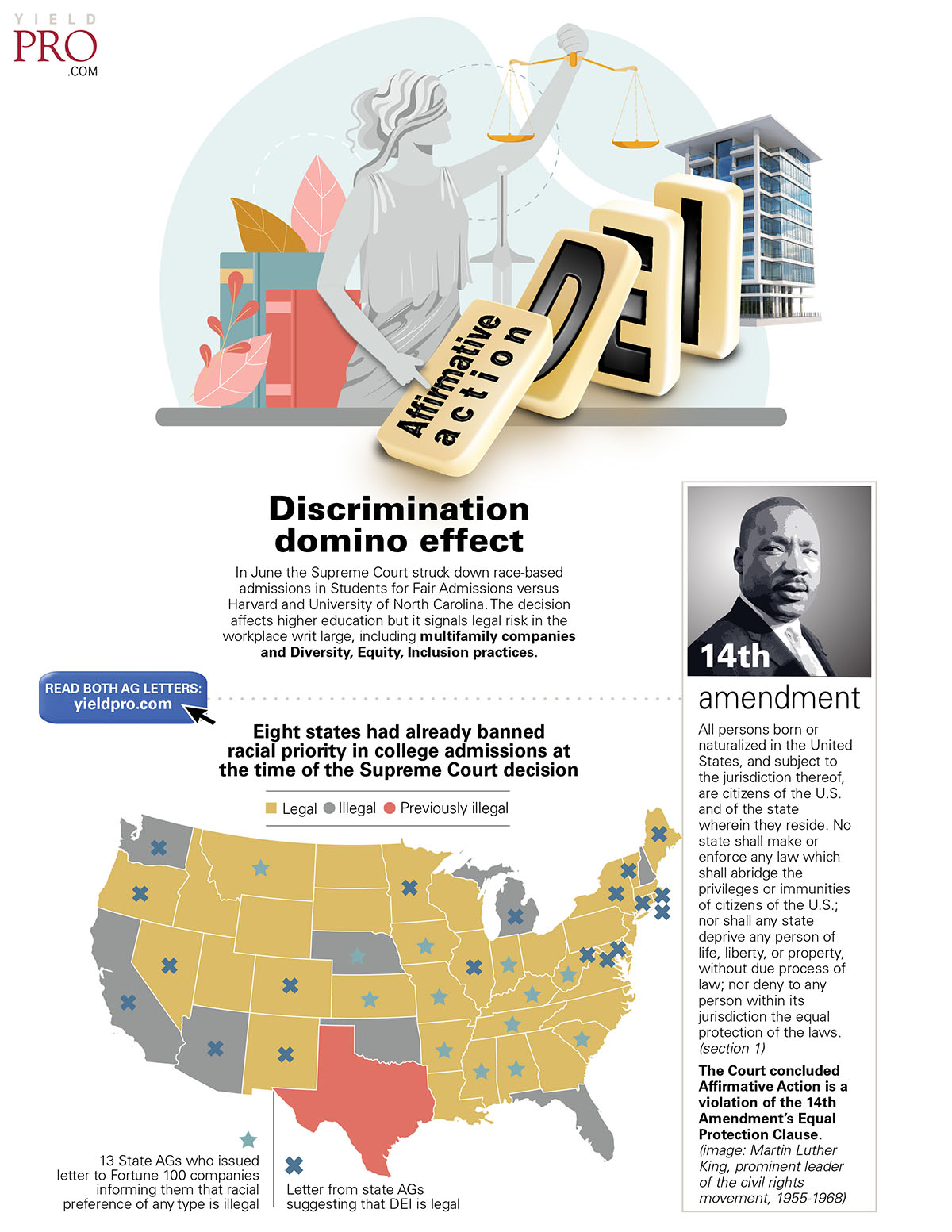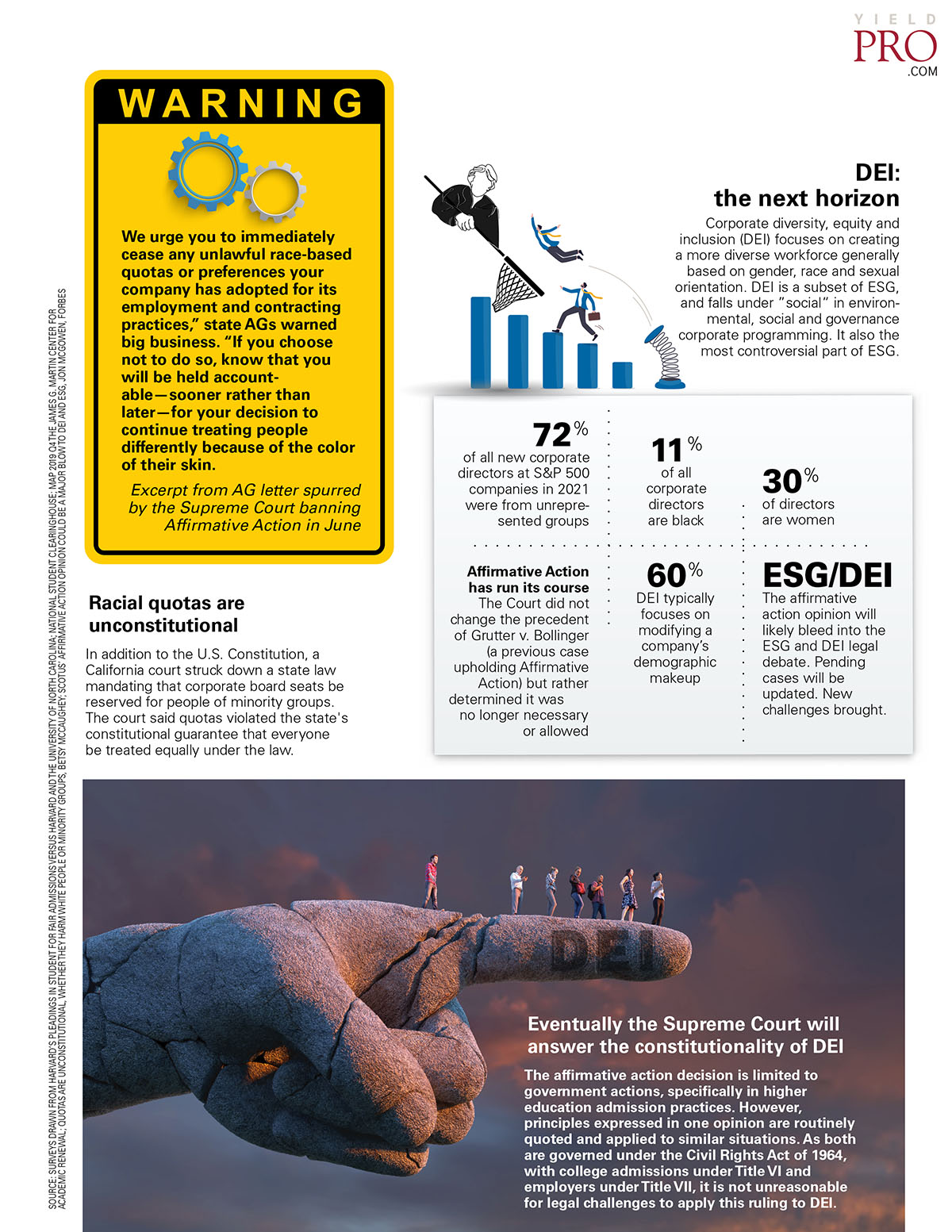In June the Supreme Court struck down race-based admissions in Students for Fair Admissions versus Harvard and University of North Carolina. The decision affects higher education but it signals legal risk in the workplace writ large, including multifamily companies and Diversity, Equity, Inclusion practices.
Eight states had already banned racial priority in college admissions at the time of the Supreme Court decision.
14th amendment
All persons born or naturalized in the United States, and subject to the jurisdiction thereof, are citizens of the U.S. and of the state wherein they reside. No state shall make or enforce any law which shall abridge the privileges or immunities of citizens of the U.S.; nor shall any state deprive any person of life, liberty, or property, without due process of law; nor deny to any person within its jurisdiction the equal protection of the laws. (section 1)
The Court concluded Affirmative Action is a violation of the 14th Amendment’s Equal Protection Clause.
Warning
We urge you to immediately cease any unlawful race-based quotas or preferences your company has adopted for its employment and contracting practices,” state AGs warned big business. “If you choose not to do so, know that you will be held accountable—sooner rather than later—for your decision to continue treating people differently because of the color of their skin.
Excerpt from AG letter spurred by the Supreme Court banning Affirmative Action in June
Racial quotas are unconstitutional
In addition to the U.S. Constitution, a California court struck down a state law mandating that corporate board seats be reserved for people of minority groups. The court said quotas violated the state’s constitutional guarantee that everyone be treated equally under the law.
DEI: the next horizon
Corporate diversity, equity and inclusion (DEI) focuses on creating a more diverse workforce generally based on gender, race and sexual orientation. DEI is a subset of ESG, and falls under ”social” in environmental, social and governance corporate programming. It also the most controversial part of ESG.
- 72 percent of all new corporate directors at S&P 500 companies in 2021 were from unrepresented groups
- 11 percent of all corporate directors are black
- 30 percent of directors are women
Affirmative Action has run its course
The Court did not change the precedent of Grutter v. Bollinger (a previous case upholding Affirmative Action) but rather determined it was no longer necessary or allowed
60% DEI typically focuses on modifying a company’s demographic makeup
ESG/DEI
The affirmative action opinion will likely bleed into the ESG and DEI legal debate. Pending
cases will be updated. New challenges brought.
Eventually the Supreme Court will answer the constitutionality of DEI
The affirmative action decision is limited to government actions, specifically in higher education admission practices. However, principles expressed in one opinion are routinely quoted and applied to similar situations. As both are governed under the Civil Rights Act of 1964, with college admissions under Title VI and employers under Title VII, it is not unreasonable for legal challenges to apply this ruling to DEI.


















